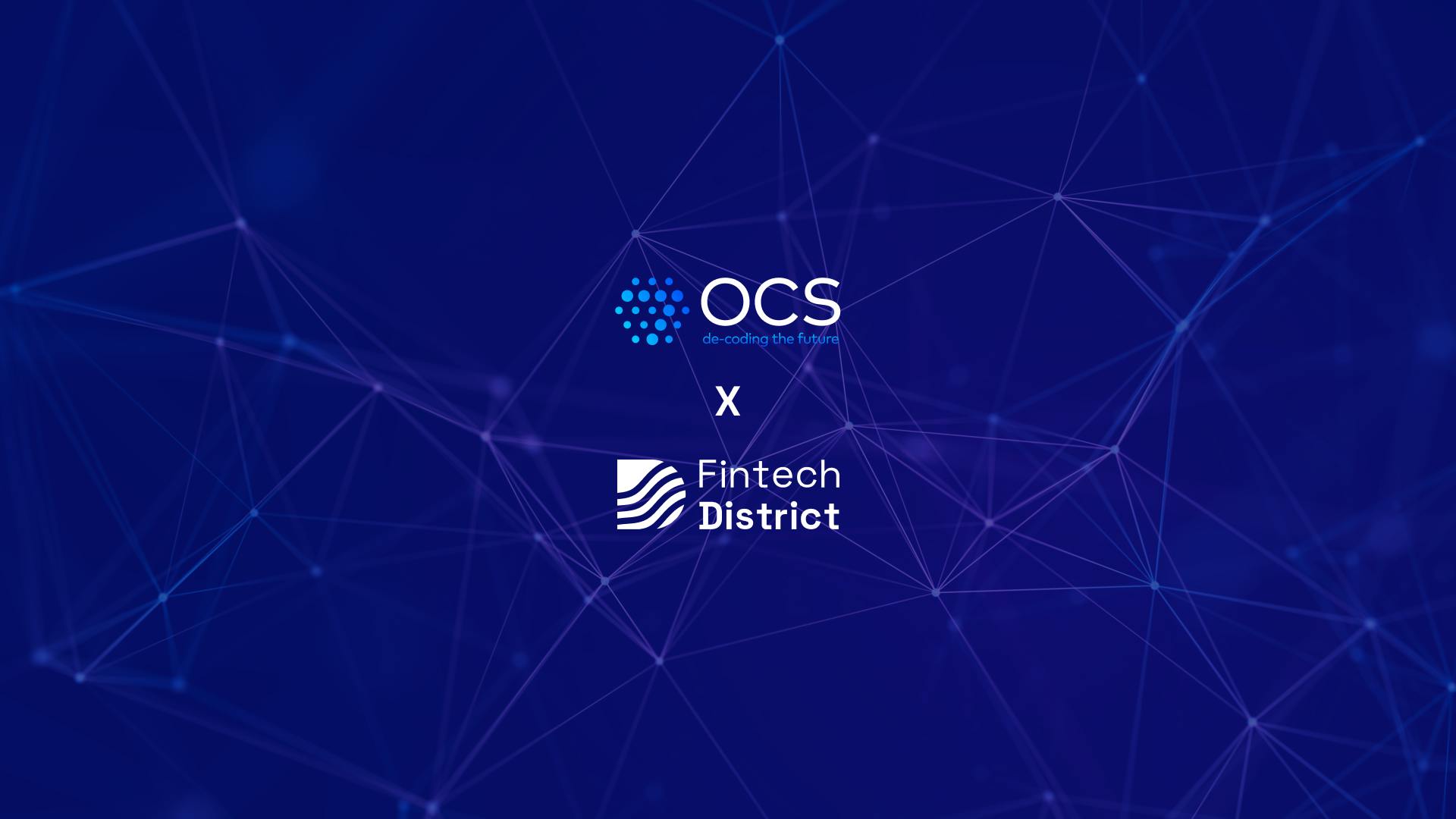
The Italian fintech ecosystem is constantly evolving: according to the latest data from the Italian Fintech Guide 2023, there are over 630 Fintech & Insurtech startups and scaleups in our country. This is therefore a very large market that includes a wide portfolio of different verticals. Specifically, considering the Fintech District community, which today counts almost 300 entities and constitutes about 60% of all the commercially active fintech ecosystem in Italy, as also reported in their latest Community Insight on Digital Identity in May 2024, the most represented segments are as follows: TechFin (78), Payments (46), Lending (27), WealthTech (27), Crypto & DeFi (23), and Insurtech (23).
Within the technology sector for the credit world, with the Lending segment ranking third in this virtual "classification", lies the experience of OCS. The company represents a unique entity in its kind: since 1984, it has been guiding its clients (banks and financial institutions) through the LendTech revolution, redesigning consumer finance models together with them. In these forty years of history, OCS has closely observed the evolution of the relationship between banks and fintech. With this awareness, we asked Silvio Lucano, Head of Consulting at OCS and with the company since 1987, to analyze the relationship between traditional financial institutions and technologically innovative players. Starting with one premise: the relationship is decidedly beneficial for all parties involved.
“The collaboration between banks and fintech allows the former to explore the possibility of offering new processes and new products to customers through a lean approach based on pilot projects” comments Lucano.
2009 is the year conventionally marked as the origin of FinTech: while traditional operators were grappling with the crisis and the consequent collapse of trust from their customers, opportunities for meetings between technology and finance experts were flourishing. Of course, technology entered the banking world much earlier: at least since the 1950s with the advent of credit cards and subsequently ATMs.
In any case, in the second decade of the 2000s, when fintech as we understand it today was still establishing itself in the market, large banks often considered the new operators as a competitive threat. Today the situation has radically changed: the wall of mistrust has fallen, and financial institutions increasingly perceive fintech as partners to improve their infrastructure and offer new cutting-edge services without the need for costly internal developments. Collaboration is also winning for all other parties involved: fintech companies find potential clients and possible investors in banks, while end users enjoy the benefits of optimized services based on this synergy.
“Banks have gradually learned to exploit the flexibility and speed of execution typical of fintech to quickly bring new propositions to the market, monitor their performance and commercial effectiveness, and then evaluate whether and which to consolidate within their offer. This reduces the initial investment and related risks, paving the way for an agile approach that traditional banking structures alone often struggle to adopt,” continues Lucano.
The success of this model is confirmed by the numbers. Let's look at some data together: 90% of the companies that participated in the survey conducted for the "Fintech Waves 2023" research have formed partnerships with other financial operators in the last two years, especially to launch new products and services: 65% have established a partnership with a bank or insurance institution, 58% with other fintech companies, 41% with other non-financial startups, while only one in four with historical operators from sectors such as public utilities, large distribution, and entertainment. Overall, the partnerships have been quite positive, with an average satisfaction rating of 75 out of 10.
To support the process of real innovation and digital transformation in the banking world, it is no longer sufficient today to develop cutting-edge software and application solutions. To these components (which remain essential), financial software specialists must associate a deep knowledge of the market that helps operators optimize and personalize business and customer interaction processes, skillfully interpret regulations and compliance rules, both to evaluate their impacts and to minimize risks. It is essential to transform and evolve from a technology provider to a technological partner: a true consultant capable of becoming a reference point in new strategic initiatives, but also of enabling smooth and personalized day-to-day management.
It is with this spirit that OCS positions itself in the market with the goal of accelerating innovation by operating as a digital lending hub for European and global financial institutions, acting as a bridge between traditional and new banking. OCS aims to help traditional banks become more competitive, accompanying them along the digital transformation journey, equipping them with new functionalities, and designing cost-effective, end-to-end, cutting-edge modular solutions.
“To achieve this result, it is essential to provide clients with a team of competent professionals with extensive experience and standing on key consumer finance issues: consultants capable of interacting with Delivery and Development teams to create solutions that meet individual needs with a seamless approach” concludes Lucano.